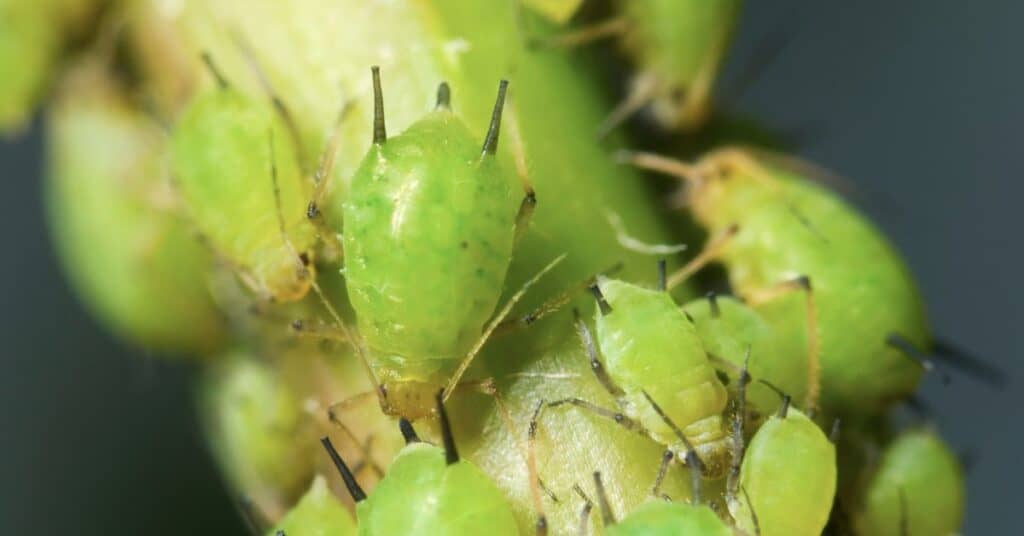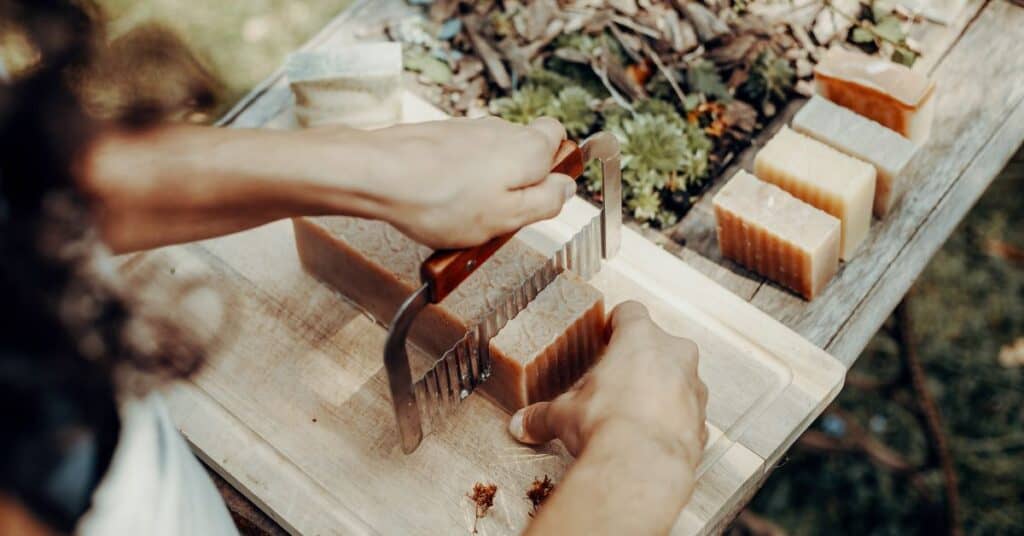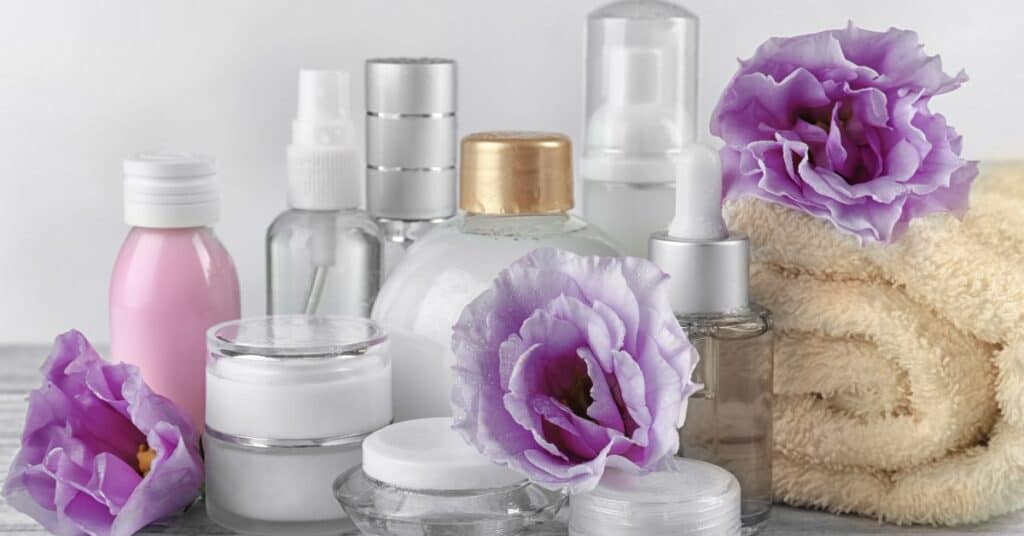Table of Contents
- How Much Soap To Water For Aphids
- How Do You Mix Soapy Water With Aphids
- Will Soapy Water Get Rid Of Aphids
- How many detergents To Kill Aphids
- How Long Does It Take For Soap To Kill Aphids
- How Does Killing Aphids With Soapy Water Works
- Final Thought
Do you want to know How much soap to water for aphids? Based on my expertise, I can tell you how much soap to use for aphids for free.
Soaps will kill aphids and tiny caterpillars in 5-8 g per liter of water.
Concentrations of 8 g per liter can kill beetles and bigger caterpillars, while 10 g per liter would harm plants and is occasionally used as an herbicide.
Soap solutions are only effective when wet; their insecticidal effects are lost once dried.
However, as you continue reading, I will educate you on How much soap to water for aphids.
Now, let’s get started.
How Much Soap To Water For Aphids
To make an aphid spray, combine one or two tablespoons of dish soapwith one quart of water.
This is the primary organic pesticide garden formula.
Blend five teaspoons of soap for every gallon of water if you have a lot of surface area to cover.
It is essential to remember that too high concentrations of soapy water might cause the plant foliage to be burned to maintain the correct aphids-to-soap water ratio.
Put the mixture into a spray bottle to use as an aphid spray.
You may apply it to plant leaves, buds, and stems by spraying it or wiping it with a cloth.
Aphids may be removed from plants by vigorously spraying them with an insecticide that will kill them on contact and knock them off the plant.
The insecticidal soap dries away the waxy covering of soft-bodied insects like aphids without harming the plants, natural predators, or helpful insects like bees, lady beetles, lacewings, or parasitic wasps.
This allows the insecticidal soap to kill the aphids without harming the plants or the beneficial insects.
How Do You Mix Soapy Water With Aphids
The most unadulterated version of castile soap is the dish soap most effective at warding off aphids.
Most run-of-the-mill dish soap products include fragrances, hand softeners, degreasers, or antibacterial compounds.
Any or all of these ingredients may harm your plants’ health.
You must use pure soap instead of detergent since pure soaps are formulated with vegetable oils or animal fat, which is essential for suffocating the aphids.
Synthetic components are used throughout the manufacturing process of detergents.
Because they do not include these fats or oils, detergents are less effective against aphids and may also harm your plants. Aphids are little insects that feed on plant sap.
If you need to water several plants simultaneously, use five teaspoons of dish soap per gallon or combine one tablespoon with one quart of water.
After thoroughly incorporating all the components, pour the solution into a new sprayer bottle.
Will Soapy Water Get Rid Of Aphids
Yes. Spraying them with soapy water is the most popular non-chemical cure.
Insecticidal soaps may be purchased, but many people create their own by diluting a teaspoon of washing-up liquid in three liters of water.
Under a layer of soap, the aphids cannot breathe and suffocate. If you want to do this, spray on a cloudy day because spraying in direct sunlight may burn the plant.
Other standard methods include squeezing clusters between your finger and thumb or blasting them off the plants with water pressure from a hosepipe (be careful not to harm your plants).
As recommended above, you can grow other plants as ‘lures’ more appealing to the blackfly than the artichokes.
Kill the blackfly when they arrive on your ‘lure’ plants; otherwise, you’ll feed the local aphid population! If you don’t intend to consume the lure plants, you can spray them with pesticides.
How many detergents To Kill Aphids
Use a mixture of a few teaspoons of liquid dish detergent or insecticidal soap and a pint of water to spray on the plants to get rid of the aphids.
After mixing the water and soap in a basin:
- Pour the solution into a spray bottle.
- Grab a dish sponge.
- Go outside to clean your yard.
It would help if you got a bottle of dish soap and randomly sprayed all the plants in your yard. However, you will kill any beneficial insects and the aphids if you do so.
Instead, spray the sponge with soapy water and gently rub it around the plants’ leaves.
This will control the aphid population while leaving the beneficial bugs alone. It is critical to remember to look under the plant for eggs and larvae.
How Long Does It Take For Soap To Kill Aphids
The effectiveness of insecticidal soap may be described as “almost instant” since insects are put to death when they come into contact with it.
However, you may need to apply your insecticidal soap solution many times to see a significant change in your plants.
You must return to your plants on multiple occasions to ensure that all insects and other pests have been eradicated.
After using insecticidal soap, you should be able to see a difference in the majority of cases after only one day.
Even in the most severe infestations, a single application of the solution once every three to six days is required to eradicate the problem.
How Does Killing Aphids With Soapy Water Works
Aphids are killed when soaps disrupt the cell membranes of their host.
The insect eventually becomes dehydrated, which leads to its death due to the damage done to its protective coating, which is made of wax.
Smothering or choking aphids to death is another method that may be utilized when using soapy water as a pesticide.
Aphids may be killed by covering their exoskeletons with soap, which causes them to suffocate to death.
Soap has been used to kill aphids and other soft-bodied insects for over 200 years, even though the mechanism by which it does this task is not entirely known.
Final Thought
Now that we have established How much soap to water for aphids, to recap, while strong chemical soaps can eliminate aphids, they can also harm your garden.
Some aphids will be killed by natural soapy water, but not all, and the remainder will be removed.
To discourage aphid growth, spray your plant with soapy water every few days. Check the soap’s components and test your solution on a single leaf before applying it to the entire plant.



